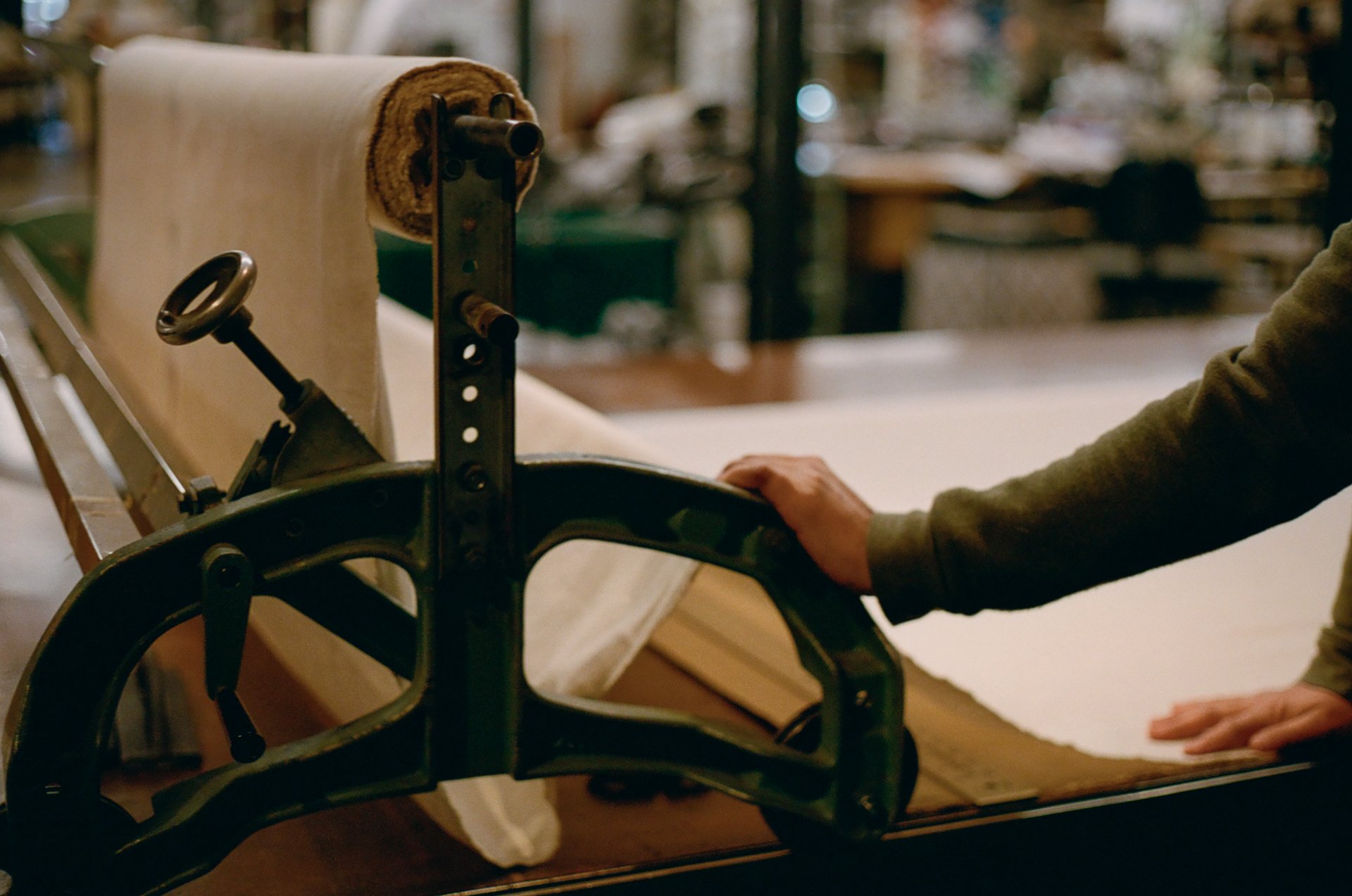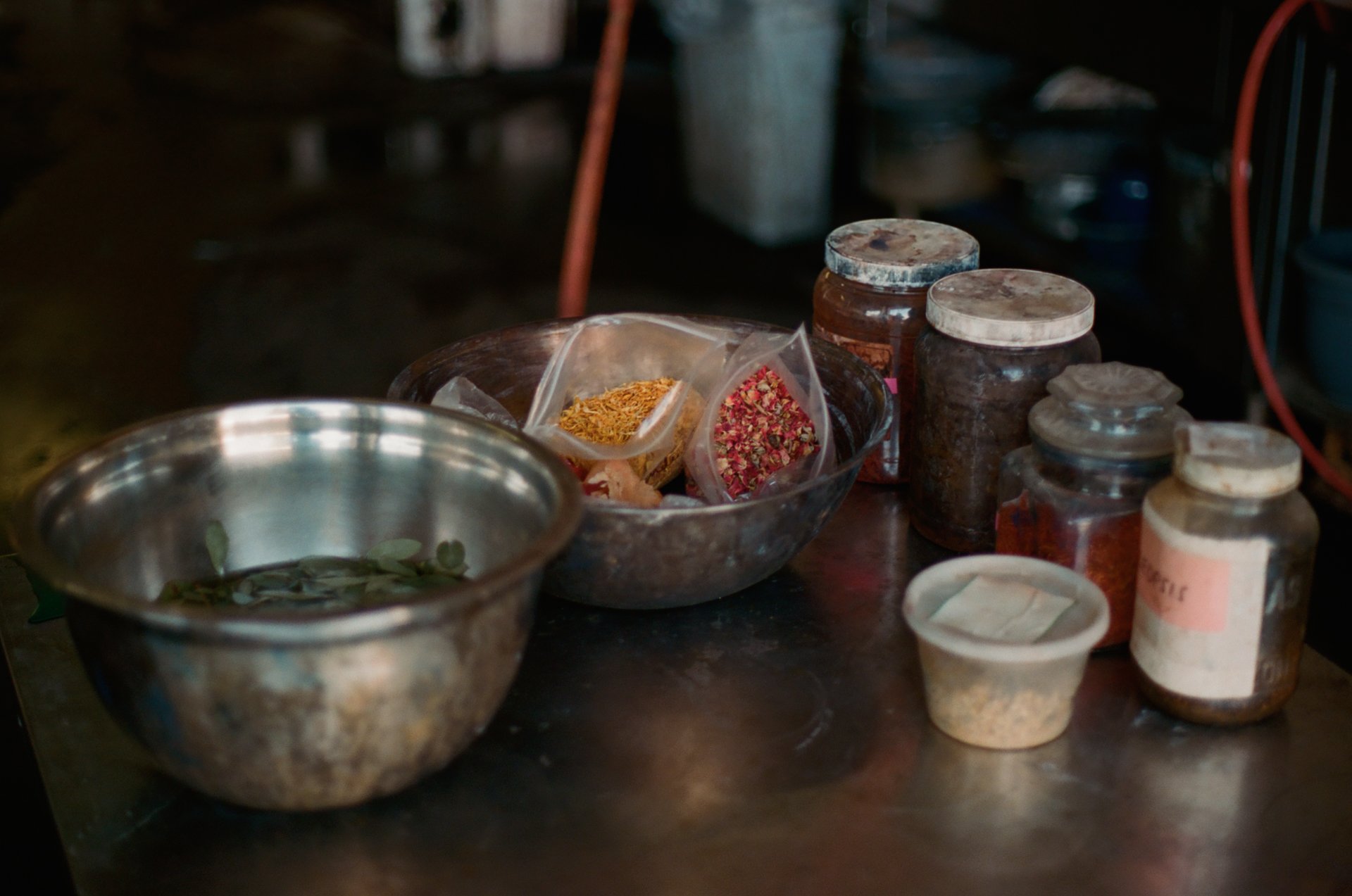a collection of artifacts
each piece is both deeply personal and universal:: a common cement cemetery planter from new england walks; a mosaic from the house of the tragic poet in a forgotten book, lemon tree branches painted on the wall of her childhood house in rural pennsylvania; an early american glass goblet on display in a midwestern museum; a winding heraldic snake from rocky hikes in new mexico. her work is an ongoing list and lifetime collection of objects, images, memories, bits of fabric and scraps on paper derived from where alexis is from and what she’s seen.
fine fibers
from start to finish, there is a human element involved in every part of the process.
the fabrics alexis uses are organically grown in texas as part of an organic growers coop; spun at a mill north carolina (one of only two in the us that process organic cotton) and woven in a small town in pennsylvania on antique looms where her family has deep roots; patterned, cut and sewn in a living wage // low waste studio in north carolina; and garment dyed in rural pennsylvania using plant-based dyes.
working in small batches ensures that each piece is considered, that we’re not overproducing. there is always a dialogue open about how we continue to do things responsibly, changing our methods as we all continue to learn more. because alexis’ pieces are made using natural, organic materials and natural dyes (dyes made from plants), they are free from many of the harmful chemicals (including pesticides, herbicides, and heavy metals) that are used in the production of synthetically constructed or dyed materials and conventionally grown natural fibers.
responsible methods
each piece celebrates and supports domestic farming and manufacturing. alexis invests in small businesses that consider the worker and impact on our environment and strives to work in a way that supports slow, responsible and reformative practices that champion small producers.
every piece of this has been done by small businesses in the united states who pay their employees at least minimum wage (often times more). we prioritize working in a way that does not contribute to low wage and child labor. working domestically also helps to lower our carbon footprint, transportation of goods from texas to pennsylvania has much less of an impact than those that are shipped around the world. it’s also more possible to have an understanding of what working conditions are like, how everyone’s treated, and have a personal connection to those who work on this clothing. while it’s just alexis on the day-to-day, this work is a collaboration of many individuals and small businesses and couldn’t be created without them.
this line is near no-waste, whether it be the dyers who use collected rainwater for dyeing and compost leftover dyestuff at local sustainable amish farms; the weavers who use regenerative and biodegradable farm grown and raised natural cotton, flax, hemp and wool fiber in the fabrics they design and produce; the cut and sew production facility who save all scrap fabric material to recycle and only throw away a small bag of waste a week; or alexis’ own methods, using nearly all of the cut-offs from this project to create something else, such as making the doris gene scarf from the remnants of the eddie overshirt, or making handmade paper from the tiny bits from the frances field trouser and the elia crop jacket.








